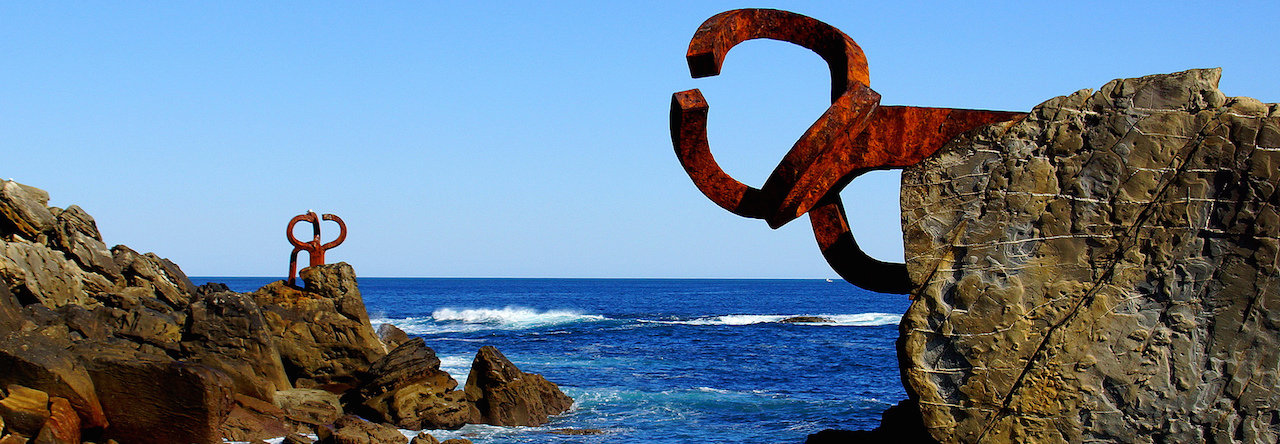When the EU began its big enlargement, many people thought it was rising the new superpower, also in military terms. USA was not going to be the only policeman on the block. However, leaders of the EU have preferred to maintain the influence in the field of soft power. As Charles Grant, Director of the Centre for European Reform, says, «although the Union is respected for its prosperity and political stability, it no longer loooks like a power in the making».
Etiqueta: International_Relations
Western democracy has proved to be the best of the political regimes mankind has tried in centuries. It does not mean it is a perfect system, but we have not found anything better. However, many people of the most advanced democracies think that the dream of extending free rights and the government from the citizens is sometimes turning into a nighmare. The fall of socialist experiments apparently left the only way to democracy, but twenty years after, it seems that some countries can survive without respecting the democratic rule and be accepted as decent members of the international community. It seems we prefer to maintain the statu quo and not disturbing the fragile peace with the democratic ‘obsession’.
We need the power of America, but it is hard to recognize it. Specially among citizens of Western Europe, people do not have a good opinion of American foreign policy. The situation varies if the White House incumbent is a member of the Democrats, but in general, it is like a tradition to criticise American actions and ask for helping when things are getting worse. Man is contradiction.
 China has been the great icon of globalisation. His powerful economic development was a sign of the prosperity of the decade. Every country made business with China and this country was the huge consumero f economic resources. When the financial crisis started, even the Chinese authorities thought they were going to be free from the economic problems and predicted a growth of a 9 percent of GDP for 2009.
China has been the great icon of globalisation. His powerful economic development was a sign of the prosperity of the decade. Every country made business with China and this country was the huge consumero f economic resources. When the financial crisis started, even the Chinese authorities thought they were going to be free from the economic problems and predicted a growth of a 9 percent of GDP for 2009.
Now we have evidence that China is also facing the crisis. He will grow more than any other developed country, but the effects of the crisis are emerging in his figures. Wing Thye Woo, Senior Fellow of the Brookings Institution, explains in China’s Short-term and Long-term Economic Goals and Prospects that
“China’s economic situation in 2009 does not look good. The IMF’s January 2009 projection of growth was 6.7 percent, which was down from its November 2008 projection of 8.5 percent. The February 2009 estimate of the number of jobs lost by migrant workers was 20 million, which was double the estimate of December 2008”.
Several analysts claim that the situation of China will affect to the recovery of the United States, as America needs the financial support of the big country. In fact, if China does not begin structural reforms in his economy, we can see a commercial war between two of the main nations of the Planet. “Some analysts say that the US housing bubble was able to continue only because China prevented the long term interest rate from rising by continually investing its large trade surpluses into Freddie Mac and Fannie Mae Bonds”.
The last thing we need is a war, according to the Brookings analista. We have to reinforce the public diplomacy strategy to persuade Chinese officials about the need to increase the reforms towards a more balanced economic system.
“China’s economy has been like a speeding car for almost 30 years. The high-probability failures that could cause the car to crash in the near future could be classified under three categories (1) hardware failure, (2) software failure, and (3) power supply failure”.
These three scenarios show serious problems like a banking and financial crisis, difficulties in Government with the explosion of social protest due to corruption and inequality, or external limitations to the China’s growth: climate change, a shortfall in energy resources and a commercial war with other countries. The author draws a pessimistic future over the best engine of the global progress.
International economic crisis has taken apart other big problems, like the weak global order. Sometimes I think Mr Bush and his Halliburtons have created the financial nightmare to move the political and media agenda from the disaster of war against terrorism to the economic matters. Even I believe they have chosen Mr Obama to become President and therefore avoid hard scrutiny over their mismanagement. The race question, the civil rights stuff and the spirit of Martin Luther King dominate the public opinion arena and hide other serious problems. You know it is easy to nominate a future President in conspiracy meetings of Skull and Bones, Bilderberg Club and others. There is not problem to find a dark rountdtable to make decisions on the future of the world without asking citizens, the supposedly bearers of the light of democracy. But who needs voters if can set up a Conspiration Tank?
My reflection is related to the lack of discussions about the global threats. Despite the dubious efforts of Dick Cheney and his Oil Brothers, the fact is that after seven years of strange wars, international balance is as fragile as in 2001. Even worse, as the United States have started their unstoppable decline. At this time, we do not have another superpower and it means no stability at all in the near future.
Terrorists have not been defeated. They are reorganised and have chosen other places to prepare a new season of their deadly war. Where are they? It easy to know, at least according to the opinion of Angel Rabasa, Senior Policy Analyst of the Rand Corporation. He says that Al-Qaeda has gone to Africa, making profit of the fact that
«The internal conflict and corruption enveloping weak African governments make it easy for terrorists to move, plan and organize»
In Radical Islam in East Africa, the expert argues that terrorist leaders have infiltrated in East Africa countries and are conquering the support of population. Although Africans do not like the Arabic Islam, they are accepting the work of charities, which offer economic aid and win the confidence of citizens. Mr Rabasa asks for the reinforcement of the coalition of the United States, the European Union and other developed countries to helping Africa in a economic and social progress which put the continent far from the dark side. Otherwise, we will add another very hot spot in the planet. We have not taking care of the hungry Africa because it was a not a menace to our welfare. But, lucky for them, we are going to change our mind. Thanks to terrorists. However, now the Western intervention is not going to be an humanitarian trip. The poor always pay twice.
